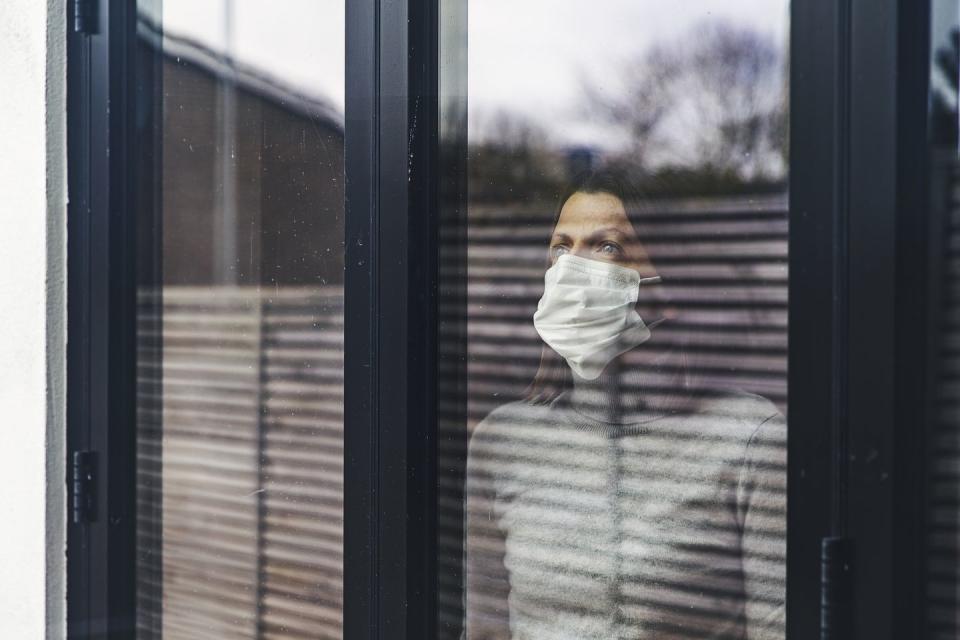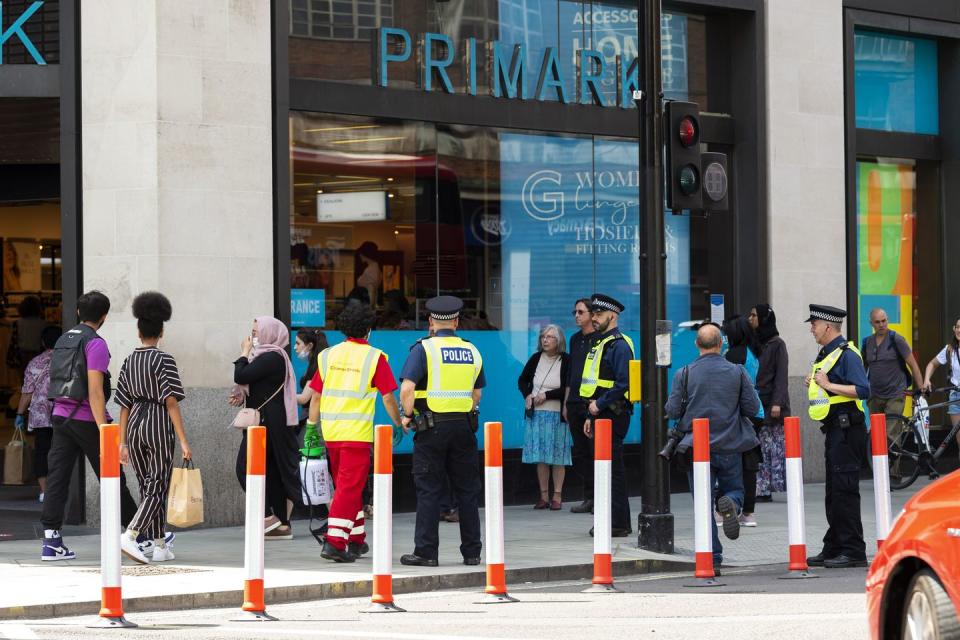The age of judgement: the psychology behind judgemental behaviour during the pandemic

Over three months after British lockdown began, slowly but surely, small freedoms are being returned to us. We can sit in a park or garden with up to six friends providing we stay two metres away. We can go the beach if again we maintain the recommended space from one another. We can exercise for as long as we like. Some children have returned to school. Shops have re-opened. Pubs are serving takeaway pints. We can sunbathe in a public space. Life is regaining a semblance of a new normality.
To the relief of many and conversely to the worry of others, the rules are being eased. But with a lessening of the rules comes more room for judgemental behaviour – now we’re allowed outside more, we can look beyond our neighbours to condemn the actions of an even greater pool. It makes the whole thing murkier, not that we weren’t judging everyone in the months prior either.
We’re all guilty of it. Perhaps you were among those who moaned about Jane from next door for going on two runs a day during the beginning of lockdown, or perhaps you have fallen out with a loved one over their perceived lockdown deficiencies. Perhaps you have shared an angry social media post about crowded beaches and parks. Perhaps you have ranted to your partner or friends after seeing people sitting too close to each other in public spaces. Perhaps you have grimaced at the runner who sped by that bit too close to you. Perhaps you have felt paranoid by what others might think as you enjoy your takeaway drink in the sunshine regardless of whether you’re acting within the rules. As Grace Dent perfectly put it in a recent Guardian article, spying on others has become our new “national hobby”. Perhaps you are among those who felt angry with the Black Lives Matter protesters in the belief that it they who will cause a second wave, that they were and are behaving selfishly. Perhaps you have judged them for not waiting until the pandemic has passed until they protested against raging racial injustice.
Not all judgemental behaviour is bad. It goes back to the dawn of civilisation – humans worked as a collective that worked best when members of any given tribe looked out for another. Humans are social creatures who do well when they collaborate. It was safer for us to move in tribes, and any outlier was seen a potential threat. Our need for inclusion started back in cavemen times when it was crucial to our survival.
“This desire to be included is a hangover from our past as a collective,” says chartered psychologist, lecturer and author Dr Audrey Tang. “It was safer for the community to sleep at the same time because it meant that no one was sneaking into your cave to steal your stuff. We have a fundamental drive to be part of a group. We have always been safer together, and inclusion - even if you are near the bottom of the pack - it still means you are part of something bigger.”
Today, healthy judgemental behaviour is a collective pulling together to call out actions that could be harmful towards others. This is a particularly pertinent idea during the pandemic, where our intentions are to protect one another, be it ourselves, loved ones or key workers.
“We are motivated by fear at the moment to remain in line,” says registered psychotherapist Jane Caro, who runs Mental Health Foundation’s programmes for families and children. “There is a sense of wanting to police each other and make sure that people are doing as a society what we need them to be doing.”
Dr Adam Moore, an Edinburgh University psychology lecturer who specialises in moral judgement, says that judgemental behaviour serves many functions in human society, but among the most critical is the purpose of sharing information about priorities and concerns, and to rally a community together in a coordinated fashion to deal with possible threats.

“Typically, moral judgements are negative – judgements to limit or prohibit others’ behaviour,” he says. “The reason is simple – there are many ways your behaviour can make my life worse, but comparably fewer in which you can make my life better. Simultaneously, making my life better is great but temporary, while making my life worse is possibly fatal and likely longer lasting in any case. A negative > positive asymmetry is pervasive in human (and primate) psychology for this precise reason.”
Although we might have felt ourselves judging others more swiftly or being judged more harshly during the pandemic, the reality is we’ve always been a judgemental society, for better or worse. The current circumstances have just made it more obvious. There are rules, both tacit and explicit, that we live by, but now – with the government’s guidelines laid out (mostly) clearly – it’s easier to call out those that aren’t adhering to them.
“There is usually more fluidity in the rules we expect people to adhere to,” says Caro. “There are normally subtle ways of judging someone, ranging from racist stereotypes to judging people on their weight. What’s different at the moment is things are more explicit as we have clear rules. There is no rule saying, ‘if you are above a certain weight, don’t wear a short skirt’, but on the other hand there is a subtle shaming that goes on to say you shouldn’t. The rules just aren’t usually as rigid.”
Dr Tang says any escalation of a willingness to make a quick judgment also comes because we have a very singular focus, rather than a diluted global approach, making it much easier to compare ourselves to one another.
“All we talk about is, ‘how are you in lockdown or what are you doing in lockdown?’” she comments. “Because everyone is talking about the same thing, it’s much easier to compare ourselves on that one measure. It’s easier to judge. If we were looking at life in its huge technicolour multi-faceted way of living, yes there is comparison, but we’re only comparing one selfie to someone else’s selfie. Now we’re all in lockdown dealing with this, we’re all looking at the same thing.”

The other factor in our quickness to judge is that these are stressful circumstances – none of us chose this, and we have all – to varying levels – had to make sacrifices and change our way of living which is stressful. Some of us have lost loved ones or have been very ill ourselves. Some have had to manage challenging childcare situations, while others have been dealing with fraught financial worries. All of us have missed birthdays, anniversaries, weddings and big events that we were looking forward to. When we’re stressed or anxious, as humans we need to find a release for those emotions and, as Dr Tang says, one of those ways is criticising others because it makes us feel good.
“Venting not to solve a problem but just to vent, actually makes us feel better because we’ve got it out there,” she says. “All this anxiety and high level of stress is symptomatic. If we focus on getting fresh air and being more mindful, it might just allow us to the break we need so we don’t lash out. Our physical situation has had repercussions on our mental one and judgement has become symptomatic.”
It’s a theory backed up by Dr Moore – we enjoy that feeling of moral superiority and feeling like we’re a good person or the one in the right. “It gives our self-image a boost, reassurance, and provides all sorts of positive emotional and psychological benefits, although there can be some negative consequences too,” he tells us. “People also typically enjoy both winning and feeling powerful or successful. These often coincide, particularly when the issue is one of intergroup conflict.”
The problem arises when we start casting wrongful judgements that aren’t supported by fact, or without having considered the broader context. Sometimes we become so consumed by anger, we fail to take into account nuance – or just the simple fact that we might be in the wrong in having misjudged a situation. “One thing that’s very difficult for people to internalise is that intensity of feeling or intuition is not a good or reliable indicator of correctness,” explains Dr Moore. “However, it is a very reliable indicator of unwillingness to admit a mistake. The stronger the feeling, the more you may need to step back and consider alternate viewpoints.”
It is worth considering, he says, what you want your morality to accomplish. “For most people, it is a way of signalling their tribal identity and current concerns, not a framework for actual communication or decision-making for themselves, which is why so often people do not practice what they preach,” he says. “The vast majority of people do not introspect on their moral psychology in any meaningful way; they simply take it as given.”

Unhealthy judgemental behaviour is rooted in various means, and our sense of shame plays a key role. If we shame someone else first, then it deflects from our own insecurities and internal unhappiness, and even our own fears about being judged.
“It’s all connected to our need as human beings to feel ok about ourselves and if we don’t feel ok or insecure about whether we’re ok, it’s a defence mechanism to put the focus onto others,” says Caro. “So, ‘I will judge you first because it serves as a defence against my fear that I will be judged. I don’t want to feel that feeling of shame that I’m not ok.’
“It feels great to be in that self-righteous place where you stand on your pedestal and look down on others, but it’s not healthy.”
Context is key when we think about judging others. “When friends start to get on each other’s cases, that doesn’t sound like healthy judgementalism. That sounds petty,” says Caro. “We need to walk a mile in someone’s shoes before judging anyone.
“It’s easy to judge without recognising that their situation is different from yours. There’s a lot of inequality with this – this is not an even playing field,” she adds. “There is something about this feeling of wanting to punish, to humiliate or expose or shame that we lose the healthy parts of judgementalism – it then becomes a reflection of our personal psychology and insecurities we have.”
Unsurprisingly, the impact that judgment can have on the person being judged is also pretty damning. “It can be destroying,” says Caro. “It can impact people’s self-esteem and it also taps into any shame processes that might exist anyway from an culminated experience of growing up, perhaps from being bullied or experiences in relationships that can be then re-triggered. It can be hugely damaging. We all have a different level of fragility and resilience, so some people have a thicker skin and might have found a way of letting it bounce off them, but, as a whole, humans need to feel valued, safe and to feel as if they live in a way that is accepted and not judged by others.”
Being judged also has a paralysing effect in that it can stop us from making positive steps forward. Not only does it damage the person being judged internally, but it’s also unlikely to cause the desired effect that the judger was hoping for.

“It makes us feel guilty and guilt is a negative emotion,” says Dr Tang. “When we feel bad about something, it gives way to the negative states of sadness, anger and shame. We talk about the awful suicide of Caroline Flack, which came after huge judgement and presumably huge guilt and shame. There is a lovely quote, ‘there is no violent act that has not been rooted in shame and humiliation.’ That guilt, shame and anxiety can give way to mental health illnesses which can in turn lead physical manifestations such as stomach illnesses and heart attacks.”
The Black Lives Matter protests and the judgement and feelings that they have provoked require an extra level of sensitivity and contextual understanding. No one would question the ill-timing of any mass gathering given that we are in the midst of a pandemic, but it is more important than ever to really consider the context before forming an opinion.
Researchers Janine Willis and Alexander Torodov said in 2006 that we make up our minds about any given person or act in less than one tenth of a second and even less when it comes to matters that don’t affect us personally. Further research has meant that the general accepted time which is evident in most marketing and business research is three – seven seconds (Schaller, 2006).
“A lot of the issue with the BLM movement and protests comes from judgments being made very quickly – mainly because we are ‘cognitive misers’ – we have a finite amount of cognitive (thinking) space and so we don’t want to spend time and energy thinking about things that don’t serve us,” says Dr Tang. “I cannot condemn anyone for processing quickly – life really is tough enough when you think of the many things an adult must concern themselves with; but there are some things which we do need to stop and think about and this was one. Judgement is quite base; we have to learn to understand complexity. That acute sense of 'wait a minute I don't understand' is exactly what the black community has felt for far too long.”
There are ways of disagreeing with the behaviour and actions of others while causing minimal damage to both parties. Both Caro and Tang state it is important to feel heard in order to stop the feeling festering inside. What’s important, says Caro, is not making it personal.
“There’s a difference between judging people’s behaviour to judging people’s identity, their sense of self,” she says. “There’s a way we talk to children when they’ve done something wrong, ‘I love you, but I don’t like the way you just hit your brother.’ Can we draw that distinction?”
Before we cast that initial judgement, it can be helpful to reflect on why we feel the way we do. “Take some time to reflect if there is something more going on for you right now,” Caro says. “Think, ‘what’s going on for me generally? Am I feeling frustrated or crowded in this situation? Do I have history with this person that this taps into something deeper?’ Maybe you’re the person struggling right now and not the other.”
Another step to consider prior to lashing out or unleashing our views is that it can be more helpful and productive to channel our energies elsewhere into something that makes us feel good. Ultimately, says Dr Tang, judgement often only ever achieves anger and argument rather than action.

“You have to remember your reasons and choices. All we can do is answer to our sense of moral judgment and live with it,” says Dr Tang. “The only behaviour you can control is your own and as long as we can justify that to ourselves, then why are we wasting our time on worrying on what other people are choosing to do? If we ask ourselves that question it might reveal a deeper reflection on why we’re so angry – have we felt rejected or missed out throughout our life and is that digging up some unconscious feelings? A lot of the time anger is a symbol that there is something deeper than someone hasn’t worked through. If we use it as a starting point for reflection, it’ll help us grow more.”
Next time we feel that feeling of anger or irritation rise when we flick through social media and see people acting in a way that we wouldn’t, or when we see the queues outside Primark, or a crowded London park, it might worth thinking that – despite our best intentions – we might not understand the full context, nor have the capacity to make a considered opinion.
“Judgement is better left to the judges,” says Dr Tang. “If you’re going to affect someone’s life by it, then you have to be highly skilled and highly trained. Trial by media – is it ever appropriate? It’s not our job to do. If we want to be in that position, we need to do the training.”
In need of some at-home inspiration? Sign up to our free weekly newsletter for skincare and self-care, the latest cultural hits to read and download, and the little luxuries that make staying in so much more satisfying.
You Might Also Like


